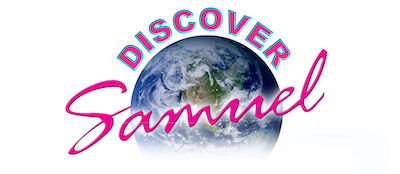In the summer issue, Samuel addressed the concept of evil. The questions below were sent in by readers in response to that article.
You spoke about breaking both spiritual and moral laws out of ignorance. If we act out of ignorance or confusion, once the truth has reached our consciousness, are we obligated to go back and make amends or just act in accordance with our new awareness from that point on?
You are obligated to act in accordance from that point on, and if the karmic consequence of what you have done in ignorance or confusion in the past is having an effect even now, that’s where you need to go back.
You don’t need to go back and fix every bad thing you ever did, because you might cause a whole lot more difficulty, but if there are certain things from your past that are still creating trouble in your present, clean them up now that you know better.
Please explain our societal belief that punishment is a solution for crime or evil-doing, not only institutionally, but in our homes with our children. How can we help to instill more effective forms of teaching into mass consciousness, and how can we replace imprisonment with a more compassionate instruction and guidance?
What a love question! Many individuals associate consequence with punishment, and so they do not allow there to be consequences for an action because they believe that that is punishment, whereas having consequences is an important thing in the learning process. Oh, look, I smile at my father, my father smiles back. I like that, I will smile again. The consequence teaches. Oh, I choose to break this rule and stick my hand in the stove and I get burned. It hurts me.
What happens too often in society and family situations is that the rules are unspoken, presumed, not clear, so that one is unable to gather wisdom from the consequence because of not being particularly aware that a certain activity is frowned upon. And that makes a difference. When you break a rule that you were not aware was a rule, it’s not consequence, it’s punishment. When you are aware, it’s a consequence and is a part of a growing process.
What makes the difference? Your law says if you murder somebody, you’re going to go to jail. In some states that may set you up for the death penalty. You murder somebody and you have a trial. Remember, theoretically you don’t have a justice system, you have a law system. Theoretically in that trial if you had some sort of extenuating circumstance—yes, I did the murder, but it was self-defense, or it was an accident—you should not receive the consequence prescribed by the law for that action.
If, on the other hand, you walk into a friend’s house and you see a book you really like, and you reach out and you touch it, and all of a sudden your friend comes into the room and starts berating you for breaking into their privacy and touching things that are not yours, you’re just horrified at what a terrible person you are. And yet you did not know the rule and you did not know the consequence of breaking the rule. How many of you grew up with that? The rules were made up as you went, or you got the rules and you did not know what it was that would happen, so you could not make a choice. And since you never knew which of your actions would set somebody off, you learned to just stay on the periphery.
The point is, in order to avoid having to give punishment, people have stopped being clear where boundaries are. Nobody believes that consequences are enough, but the reason they don’t believe it is that they’ve never been clear with the boundaries and the rules and what the consequences would be. Do you understand the Catch-22?
Originally, from earliest humanity, rules in the home were a matter of keeping you safe, and laws were designed in the same way, to protect the individual. They have instead become the way you should live your life. But never establishing what it’s fully about—here is the reason for this law, here is the consequence of breaking it—has created individuals who believe that might and force and power control. Rather than understanding the natural progression of action and consequence and allowing the person to think about that because they see what the system is.
Force creates the need to fear. Fear creates the inability to act. The inability to act creates a society that must have laws instead of understood rules, because it’s the only kind of boundary people will be able to have. It has a whole lot to do with child-rearing difficulties now.
When you believe in punishing your child with physical violence, you teach the child that physical violence works, that you do not have to have an understanding of action and consequence, but “because I said so,” an arbitrary expression of power without helping the process of wisdom to happen, creating a society that cannot do anything but break law because they don’t know how to judge their own actions.
It would take care of itself if you realized that the reason this pattern is following you around and around and around, and why you’re constantly faced with this and unhappy, is because the pattern itself is a consequence.

